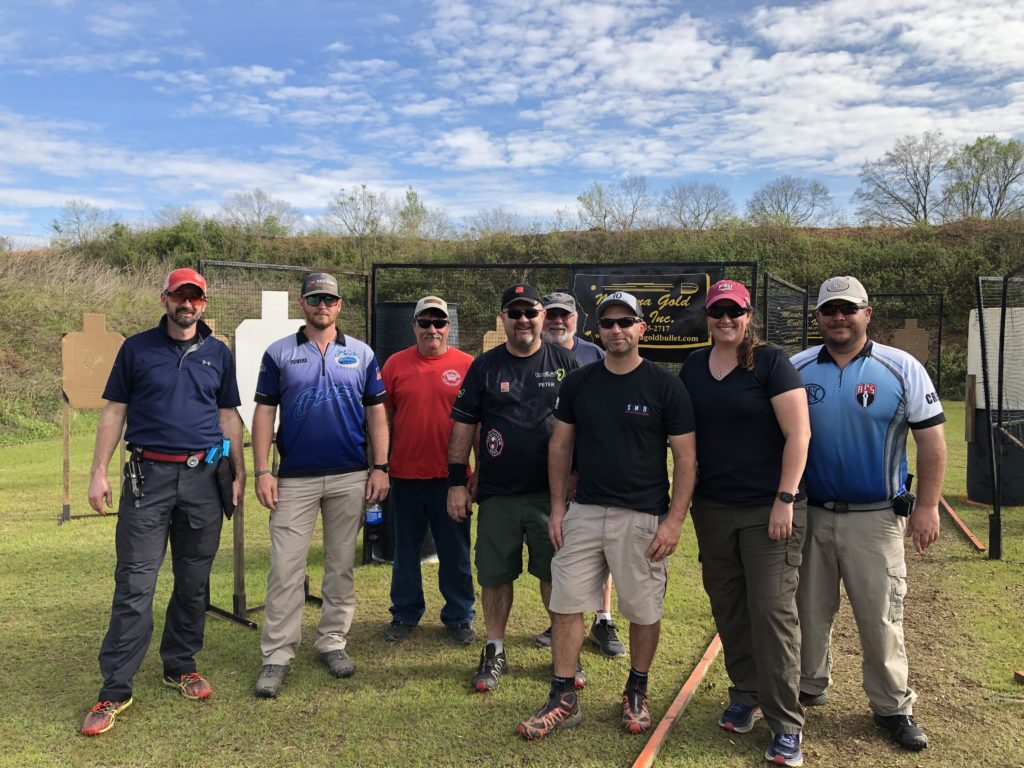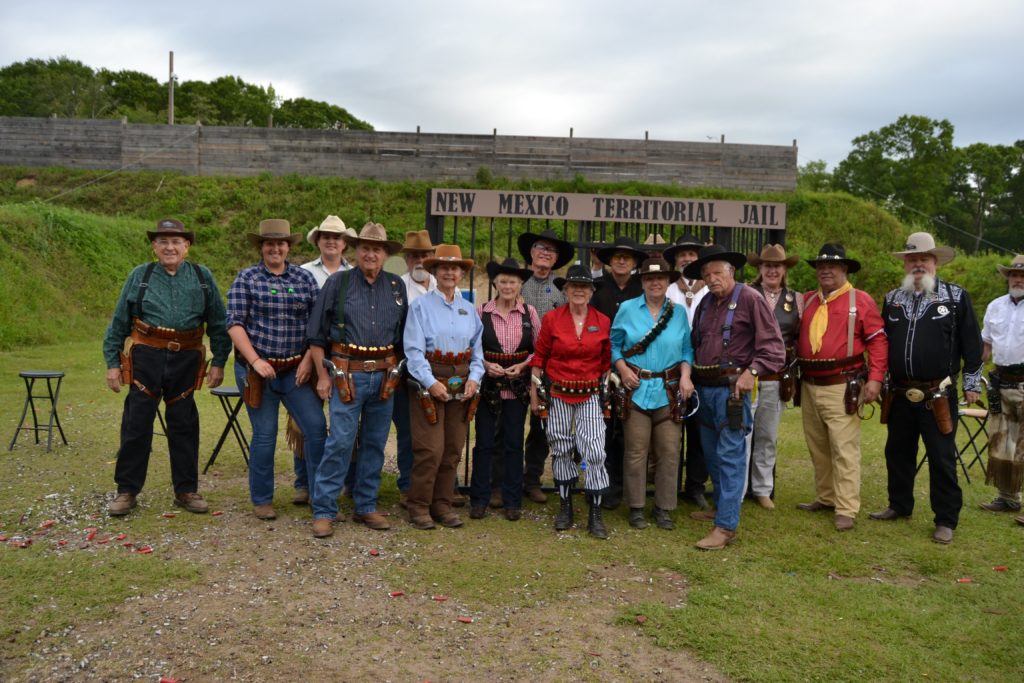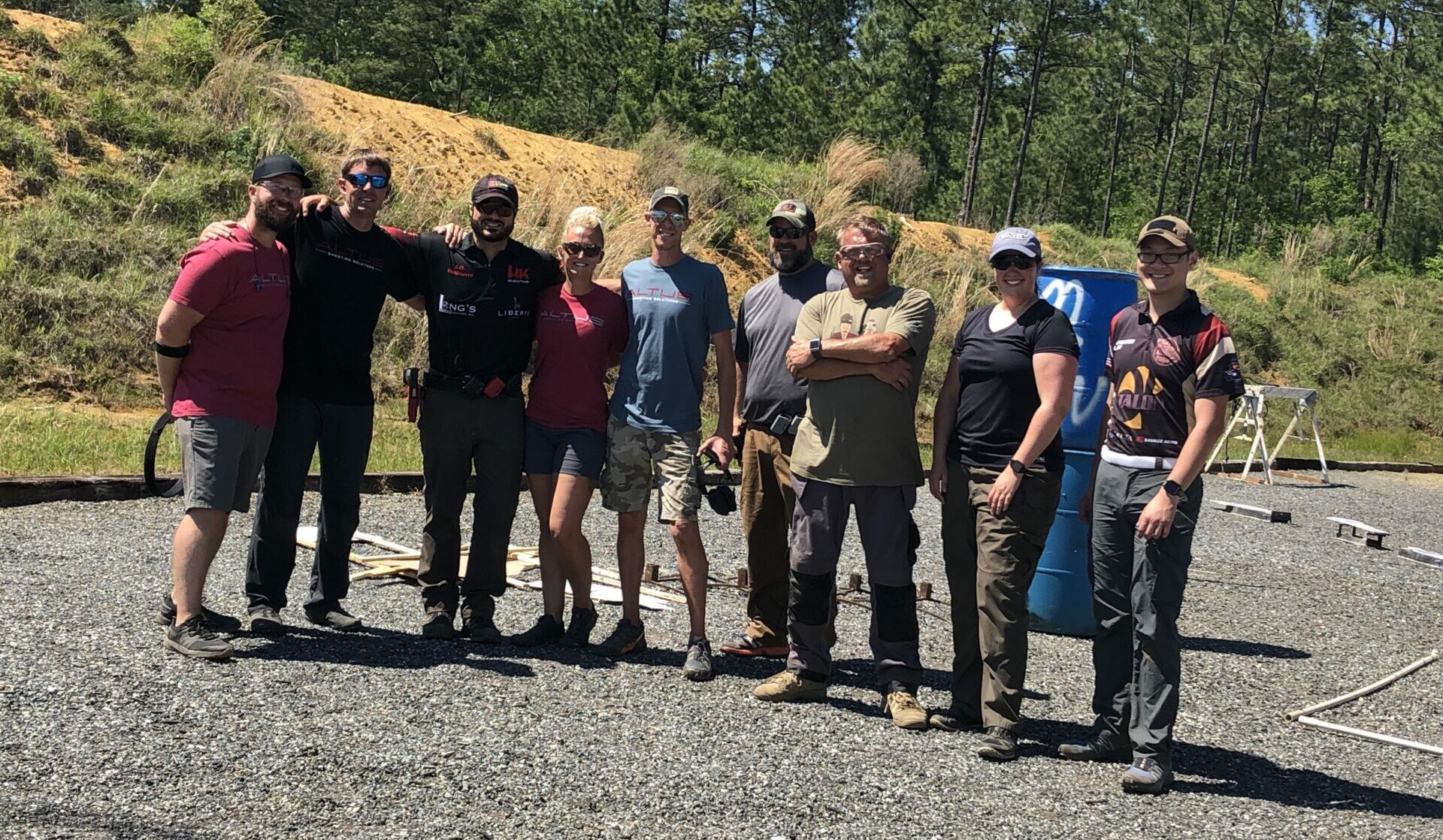There’s a lot of time and effort that goes into putting on a shooting competition. If you’ve never volunteered to help out at a match then it’s hard to understand what goes on behind the scenes. In this blog, I’ll go over some common misconceptions and proper etiquette at shooting competitions.
1. Have Your Guns Sighted In and Ready to Shoot
You’d be surprised at how many matches I’ve shown up to with shooters complaining that their rifle isn’t sighted in. I know folks who put in brand new springs or a new lower the night before. When you register for a match, at some point registration closes in advance. If you know you have a match coming up, take care of what you need to take care of before showing up.
I recall one recent match I was at where the Range Officer allowed a shooter to re-shoot the stage twice because he had made adjustments to his rifle the night before. The match was in the wrong for allowing him to do that, especially when prizes or money is on the line.
I’ve learned the hard way that if you show up to a match with something new, something is going to go wrong. Practice and come prepared with everything ready to roll so there are no surprises.
2. Show Up Early!
Show up at least 45 minutes early to a shooting competition. There’s a lot that happens before a match. You have to park, get your gear on, listen to the safety briefing, get to your starting bay, listen to the stage briefing, do a walk-through, and so much more. Holding up your squad and the match is one of the most frustrating things.
I know a shooter who every match would show up at the start time of the match. While you may have time to get ready before it’s your turn to shoot, you probably have missed the stage briefing, the pasting or resetting of targets, and more that your squad will have to pick up the slack for.

3. Park Where You’re Supposed to Par
Ranges are not a convenient place to park. Most ranges are muddy, grassy, and sometimes can be flooded. Come prepared to drive off-road and have to park far away from the shooting competition. Typically, ranges will identify handicap parking if you need assistance so if you’re not handicapped, please don’t park in these locations.
One of the major issues for most matches is that people drive from one bay to another causing congestion of traffic and leaving no place for people to walk. If this is you, invest in a wagon, golf cart, or some sort of transport tool to go from one bay to the next.
If you love your vehicle and are afraid of dents and scratches, please don’t bring it to the range. I have seen so many vehicles parked horizontally taking up what could’ve been 3 vertical spots. It doesn’t matter if there are 5 or 500 shooters, park where you’re supposed to and how you’re supposed to.
4. Range Officers are Volunteers!
I was once yelled at by a new shooter at a GSSF match because of how long they had been waiting. Unfortunately, they learned the hard way that Glock rewards shooters who get to the range first as first come, first served. Range Officers are typically volunteers who work the match to get a free entry into the match or be entered into drawings for prizes. Range Officers also don’t set the rules for the match but they are the rule enforcers. If you aren’t sure who to talk to, ask for the Match Director or a paid staff member for any issues you have.
If you’ve never been a range officer or volunteered for a match, I highly recommend it. It gives you a chance to meet the shooters, understand the details of what goes into a match, appreciate the other volunteers, and is a great way to save match fees! Reach out to Match Directors to see what their requirements are for volunteering at a competition.

5. DO YOUR SQUAD DUTIES!
There was a post recently on Facebook and Instagram of Jerry Miculek, one of the best shooters in the world, resetting clay targets at a match. Your squad is the reason everything goes slowly or smoothly. There are so many ways you can help your squadmates out. Duties can include pasting targets, spray painting targets, resetting steel, replacing targets, putting up new clay targets, running the timer, scoring targets, being a spotter, picking up brass, and so much more. Be like Jerry!
I’ve been burnt out at a lot of matches by helping out to the point that once I was up to shoot, nothing was reset or pasted for me. At a recent match, at one point, I was scoring on paper and on a tablet, resetting the steel targets, and spotting for shooters. With 20 people on my posse, I shouldn’t have been doing all of these tasks.
It doesn’t matter if you’re the newest shooter or a world champion, if you can’t do squad work, you shouldn’t be shooting. It really ruins the match for everyone when people don’t equally pull their weight.
One of the biggest changes I’d like to see is helping all the way to the very end of a match. After people shoot the final stage of the day, they typically start to leave and pack up their vehicle. What are 30 more minutes when you’ve been at the range all day long? Don’t be selfish at the end and remember to help out until everyone has shot through.

5. Don’t go to Starbucks in the middle of a match.
This really shouldn’t have to be said, but don’t go to a Starbucks or gas station during a match (unless you bring back coffee for everyone). I’m not sure how this happened at a competition, but it did. When you have to go to get coffee during a match, that means you’re not doing squad duties, you’re not ready to shoot, and you really shouldn’t come back.
6. Be Aware of the Shooting Order
Competitions may run one of two ways. Either there is a shooting order written down or you get in line to shoot when you’re ready. My favorite is when there’s a shooting order written down, but where the first shooter on a stage goes to the bottom of the line up on the next stage. This makes it fair for everyone and where one person isn’t always first or last.
The other option is kind of a mess especially in 2 or 3 gun matches where you have to stage guns in different places. If you’re familiar with priority in surfing, it’s similar to shooting sports. Whoever has been waiting the longest and ready to go, should be next in line. I have had A LOT of shooters cut me off when I’ve been ready to shoot next with rifle and mags in hand. This happens when friends are shooting together, when shooters don’t really care about etiquette, when they want to shoot first so they can go back to socializing with their significant other they brought with them, or when it’s the last stage and everyone wants to shoot first so they can be done.
If you’re on deck or in the hole, be ready with your magazines loaded and your firearm either in your holster or in a bag. The range officer shouldn’t have to hunt you down to shoot. Most likely a squad leader will be “in charge” of your squad and will have this duty of making sure everyone is in order and ready to go when it’s their turn to shoot.

7. Have a Good Attitude
I have shot the best match of my life and the worst match of my life so far. It is just a game after all and it’s not life or death. The Range Officer’s and Match Director’s do the very best they can for shooters and because human error is part of competitions, they won’t always be fair. I’ve gone back and watched videos from competitions only to find out that something was scored wrong. It happens. It’s part of the game, but attitude is the most important part of shooting competitions.
Have other lessons about shooting competitions? Share with me in the comments! I’d love to know what you’ve experienced and how to improve shooting competitions for others.


